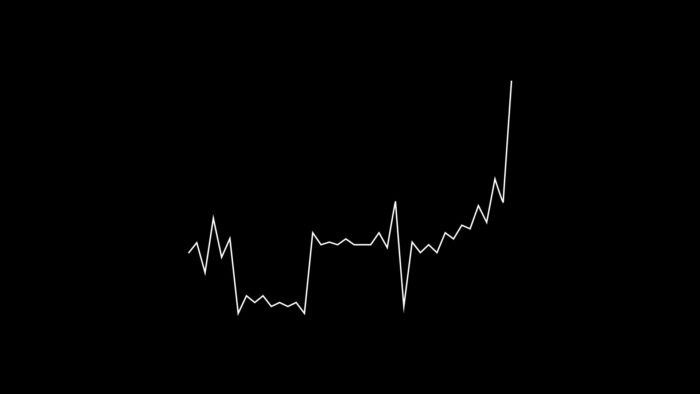As I reflect on the last two years of my career, I want to write about a topic that we all care about, seek an answer to, and still search for: a sense of fulfilment in our jobs.
The default thinking is to assume that you cannot have fulfilment unless you are working at a particular place, with a specific team, and on a type project. In our minds, we believe checking these boxes would mean a dream come true, and we can finally experience a sense of fulfilment. For the first four years of my career, I, too, was guilty of this line of thinking. I believed that I should be working in a specific place, on a specific project, and at a specific time, and that doing so would bring me the sense of fulfilment that I desperately needed. And I was right; it would give me (or not).
What would happen though, if, throughout my career, those conditions were never met? What happens if, in all the fifty plus years that I would be working, I never get to work on the kind of project I had envisioned as the perfect project to give me a sense of fulfilment? What if I could only tick two of the boxes at a time and not all of them simultaneously? These questions are crucial because, in reality, we don’t always get what we want or what we think we deserve. Or do you believe it is impossible? You think eventually, you will get what you want out of life that would provide you with fulfilment at work? Let me tell you a quick story.
Most of you, my readers, would be familiar with Clayton Christensen, the father of disruptive innovation. If you’re not, you can read about him here. His dream was to work with the New York Times, and throughout his career, he believed that although he wasn’t working there yet, the experiences he was gaining were preparing him to eventually land the job. So whenever he reached a crossroad in his career, he would think, “Yes, this is it, this is the time.” However, that time never came until the end of his career. “And that’s okay.” As Stewart Friedman noted in this favourite article of mine, “it’s okay” that Professor Clayton never got to work with the NYT.
I once had dreams of becoming like Bruce Springsteen. Now, at age 62, I write about him, go to his shows, sing along to his songs in my car, teach my children about his significance, use his works in my Wharton classes, and even serve as a Guest DJ on E Street Radio. But despite my earlier wishes to live a successful musical performer’s life, it’s not going to happen. I’m not Springsteen, and never will be. And that’s OK.
Stewart Friedman
So what did I learn? What can you do? And how can you find fulfilment even when you realise you’ll never get your dream job?
There are three things that I learnt have to all come together for one to find fulfilment. The right mindset, the necessary action and the important outlook.
- Mindset: 80:20 rule of boring and interestingness
- Action: Total you @ Work
- Outlook: Don’t be a donkey – giving your best now as an accelerant for your next step
Mindset – 80:20 rule of boring and interestingness
Let’s start by gaining an understanding of how the organisations we work in truly function.
All organisations exist because they add value to society in one way or another. Those that fail to do so are usually closed down, as that’s simply the way the world operates. Now, let’s concentrate on the value-adding ones. Adding value means they must excel in two areas. First, they need to bring order to the increasing chaos in their domain, and second, they need to simplify the complexities that surround their field. Understanding this is crucial, and I must admit it took me about five years to grasp this concept.
Organisations are in the business of bringing order to chaos and simplicity to complexities. If you’ve ever been involved in an explicit exercise where the task at hand is to restore order amidst chaos or simplify a complex phenomenon, you’ll agree with me that it is not always fun, nor is it entirely glamorous. Rather, such activities are a mixture of mundane tasks and engaging tasks. Yet, all these tasks must be completed in order to achieve the goal of order and simplicity. And this is the premise on which I am about to make the next assertion.
Within all organisations, you will find a mixture of boring and interesting tasks. I estimate the ratio to be 80% boring and 20% interesting. As mentioned earlier, all tasks, no matter how monotonous or exciting, must be completed by you and me, who constitute the organisation. And herein lies the challenge for many of us.
We enter the workplace assuming that we will be presented daily with only the interesting and engaging tasks. We enthusiastically take on projects because, at a high level, the end goal is compelling; for instance, digital transformation. However, soon we realise that to achieve this goal, we need to write code, develop policies, familiarise ourselves with existing governing standards, attend numerous meetings, manage people, and a host of other tasks that need to be done. Soon enough, as we embark on the next exciting venture, we find ourselves bored and wondering why we can’t just be confined to writing policies or auditing the code. However, all tasks must be accomplished because it is the amalgamation of these tasks that ensures order is brought into the confounding chaos and simplicity is brought into the puzzling complexity.
This is the mindset that, in my opinion, most working professionals lack. At least, it was missing for me until I recently grasped it. And it was absent for approximately 50+ people I have shared it with, either in one-on-one sessions or in a classroom setting. Once you understand this, accept it, and choose to live with it, you are halfway there to transforming how you approach work.
The “20%” is not evenly distributed
Here’s another context to add for a balanced perspective. The “20%” is not evenly distributed. This means that although I have generalised the 80:20 split between boring and interesting tasks, not all tasks, goals, or teams would have the same split. You may look at the list I made above:
- Writing code,
- Developing policies,
- Reading existing governing standards,
- Setting up multiple meetings,
- Managing people
and say to yourself, “But I enjoy doing all of these except writing the code,” or “The only thing that looks interesting to me on this list is managing people.” And you would be right with your preferences. This is why it is essential to understand that the split is not even. Within some teams, it may be a split of 70% interesting and 30% boring because the team is at the heart of cutting-edge innovation for their company. Meanwhile, another team might experience a ratio of 90% boring and 10% interesting because their tasks are also pivotal to the goal of bringing order to chaos and simplicity to complexity, leaving all employees feeling drained.
Yet, even within the latter team, individual preferences and perceptions differ once more. Some individuals may see their job as 40% interesting and 60% boring. The message here is simple: the split is not as straightforward as just 80:20. Understand yourself and be fully aware of where you fall on the divide.
Action – Total You @ Work
Having the right mindset is not enough; it is merely a step towards ensuring you find fulfilment in any work. The real key to this fulfilment is anchored in the kind of action you take, based on the right mindset you have developed from reading the earlier chapter.
A few months into starting my job with my current employer, several things came together, and before I knew it, I was in a way depressed. Weeks passed by, and the feeling lingered. Mostly, the feeling of being a round peg in a square hole. Then one day, I became tired; it was the peak of it for me. “Enough!!!” I literally screamed in my flat.
That outburst allowed me to release pent-up emotions, but most importantly, I spent time with myself. I redefined what I believed the problem was, reexamined who I am, reconsidered what I cared about, evaluated my options, and determined a way forward. Without any changes in my external environment, my life changed at that moment.
A few months later, I was a shining star at work, recognised for my drive, ambition, and strong presence within the team—exactly the qualities I had identified as crucial during that episode a few months earlier. Subsequently, many opportunities came my way, and I began working on precisely the things that mattered to me. The only thing that had changed was that I had become more self-aware. I had an honest conversation with myself, took appropriate actions based on that conversation, and my experience took a 180-degree turn for the better. I brought what I have called the total me to work.
Self-Awareness
A search for the phrase “self-awareness” on Google returns 2.2 billion results in less than 1 second. I am about to contribute to that statistic because, as I journey through my professional career, it has increasingly become one of the most important ingredients that I have discovered. Until you are aware of yourself on the right level and within the right context, you will hardly ever find satisfaction in your job, and fulfilment will remain elusive.
You need to know what you care about, what truly matters to you, what keeps you awake at night and motivates you to get up first thing in the morning. If you search deeply, you will realise that it’s not just about building financial models, writing code, or crafting your organisation’s strategy. Instead, you care about your family, making the world a better place, being someone who makes others’ work easier, and putting smiles on as many people’s faces as possible, among other things. No matter what it is, I want you to understand that it matters, and you should always focus on it. There is always an opportunity for you to express yourself, but I might be getting ahead of myself here.
Once you are clear about what truly matters to you, you quickly learn that the work we do is simply a tool to help us fulfil what matters most. Let me explain.
What matters most to me? In relation to work, it’s about bringing order to chaos and simplifying complexity. In my 9-to-5 job, I am employed as a consultant, working with companies on Data Management & Strategy. If you consider all the work I do with my clients, you can sum it up as “bringing order into chaos and making simple the complex.” Yes, the immediate task might be to understand data lineage and document it, but it is also about restoring order to chaos. It is from this point that you begin to find meaning in your work, and the seed of fulfilment starts to grow. But it doesn’t end there.
Organisations are platforms of self-expression
Obviously, I am not going to reduce this topic to a formula, and there is no doubt that the tool you have in your hand now (what you are paid to do) is not the right tool to help you express yourself. Hence, this point.
Organisations are a platform, and no matter what you care about, there is a high likelihood that you will find something within the organisation that you can contribute to (in addition to your job) to aid you in your quest. Look for it. Leverage it to increase your “20% interestingness”.
Who are you? Whatever answer you give to that answer (you can only know through self-awareness) what this point challenges you to do is to align that with your work and it also make bold to say there are often almost opportunities for that to happen.
Outlook – Don’t be a donkey: giving your best now as an accelerant for your next step
You may have heard this story: Buridan’s donkey is standing halfway between a pile of hay and a bucket of water. It keeps looking left and right, trying to decide between hay and water. Unable to decide, it eventually dies of hunger and thirst. A donkey can’t think of the future. If it could, it would clearly realise that it could first drink the water, then go eat the hay. Don’t be a donkey. You can do everything you want to do. You just need foresight and patience.
It is understandable if all the above is still not applicable to you, and your only solution is indeed to go after that dream job. In fact, I would say that even if things were great, you should seek even better conditions. However, while doing so, don’t be a donkey. Don’t let the pursuit of what could be next rob you of the present. Drink the water well, and it will energise you to eat the food better.
In this article from 2020, I noted that “another success” is always easier after the first success.. You would have proven yourself worthy, capable, and deserving of the resources required for the next adventure once you can show a result from previous wins. Do you remember the parable of the talents? You saw how those who initially succeeded were rewarded with more resources to achieve further success. And don’t forget the one who had a lot but achieved no success; even the little they had was taken away from them.
No matter what, you need to give your best now because it will be your accelerant for the next steps. Success compounds. When you get an opportunity to be successful, grab it, no matter in what sphere that success is.
That is what I have learned about how to find fulfilment in any job you find yourself in. Please let me know your thoughts.
And remember this cautionary tale, “it’s hard to get really depressed until your dreams come true. Once your dreams come true and you realise you feel the same way you did before, then you get a feeling of hopelessness” – Rick Rubin. The feeling you crave can be achieved now. And what I have shared is how you can get it now – have the right mindset about work, take actions that foster your value, and don’t lose sight of greater potential.













